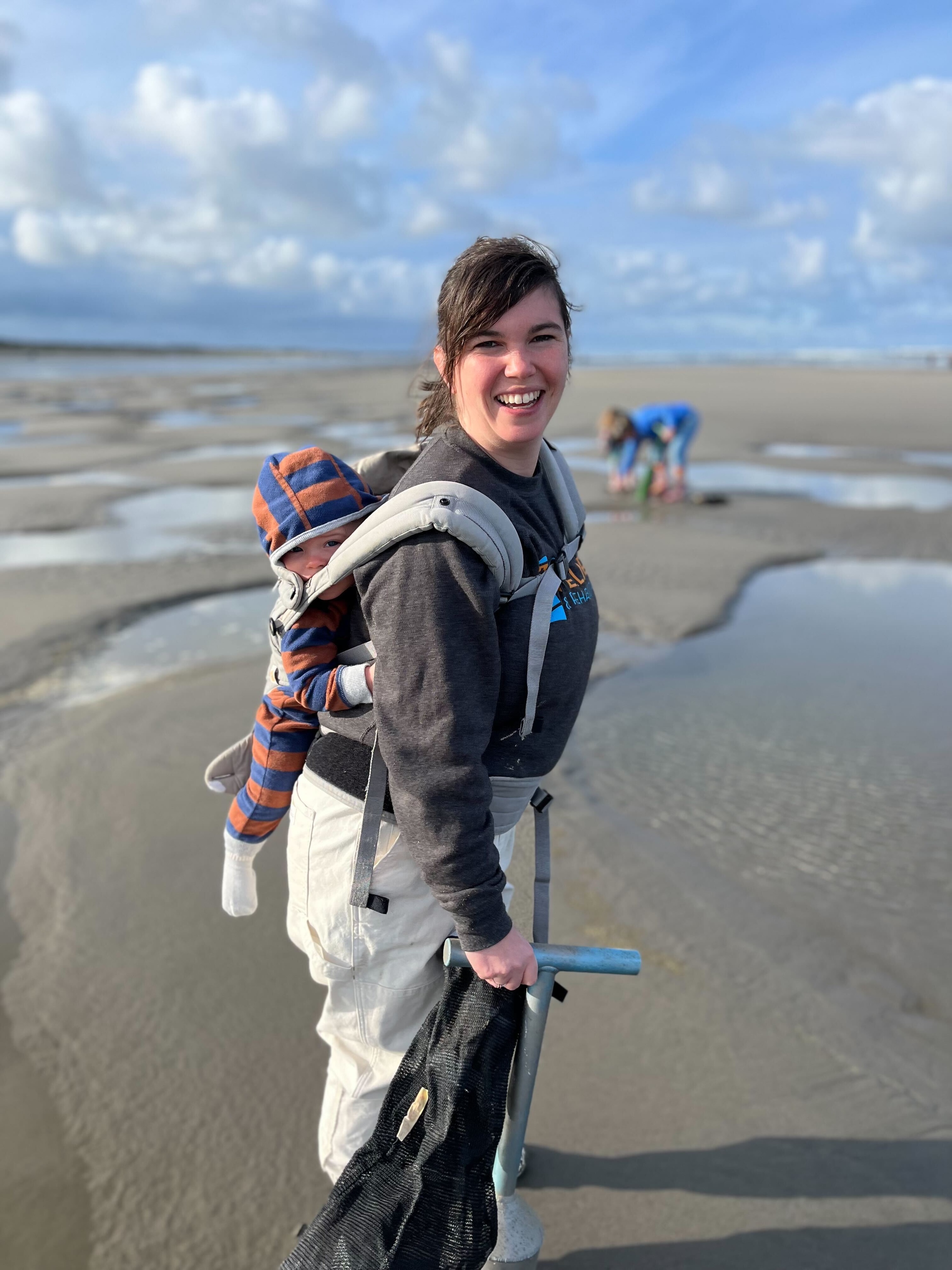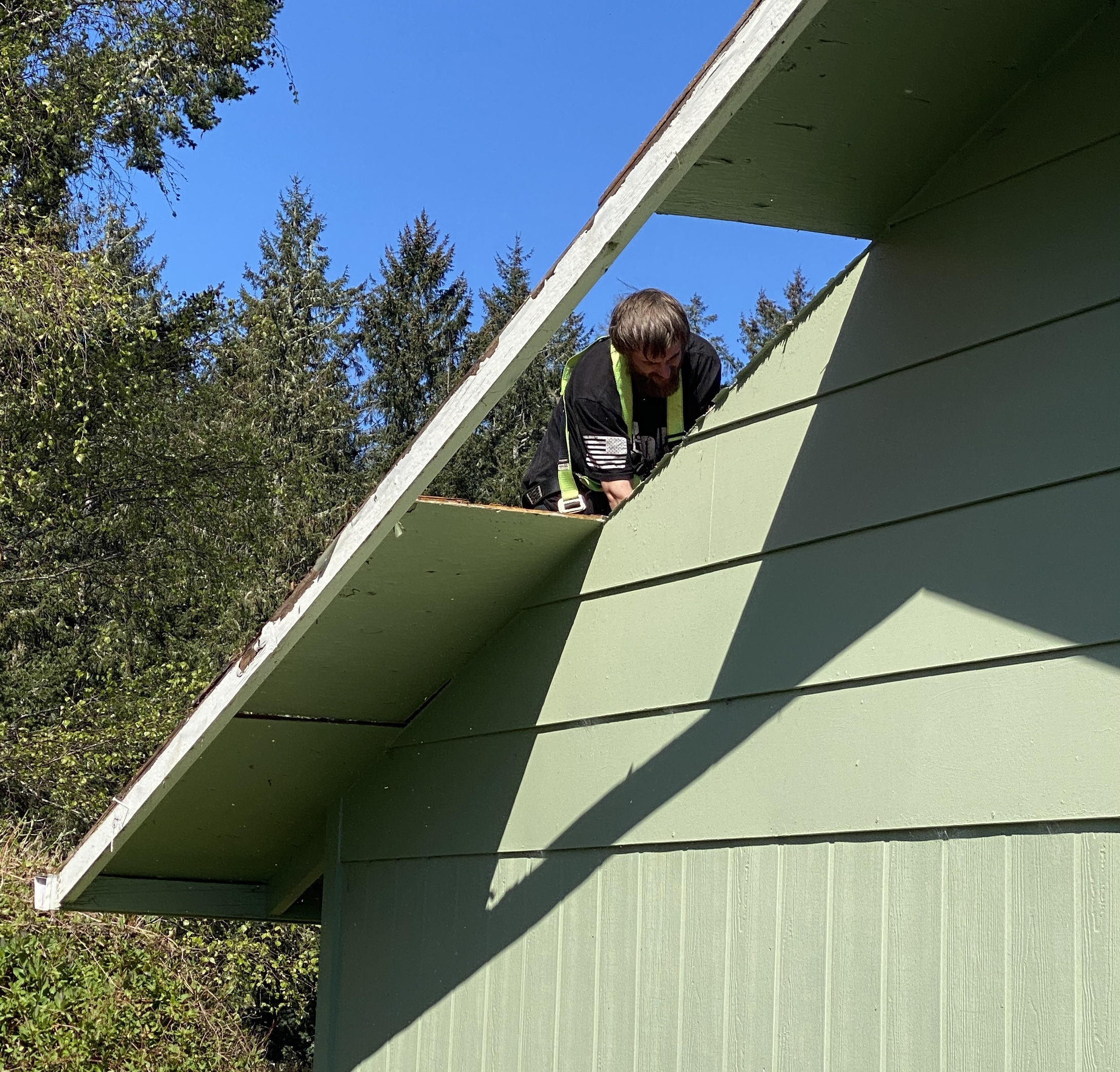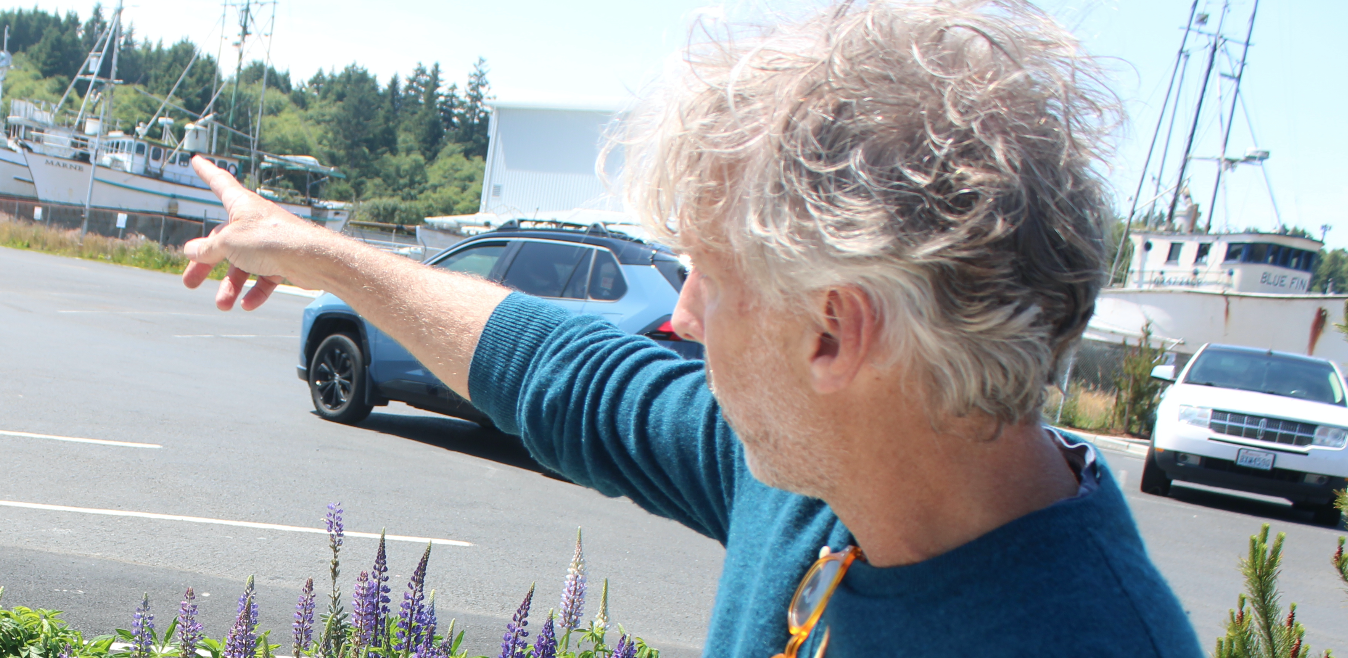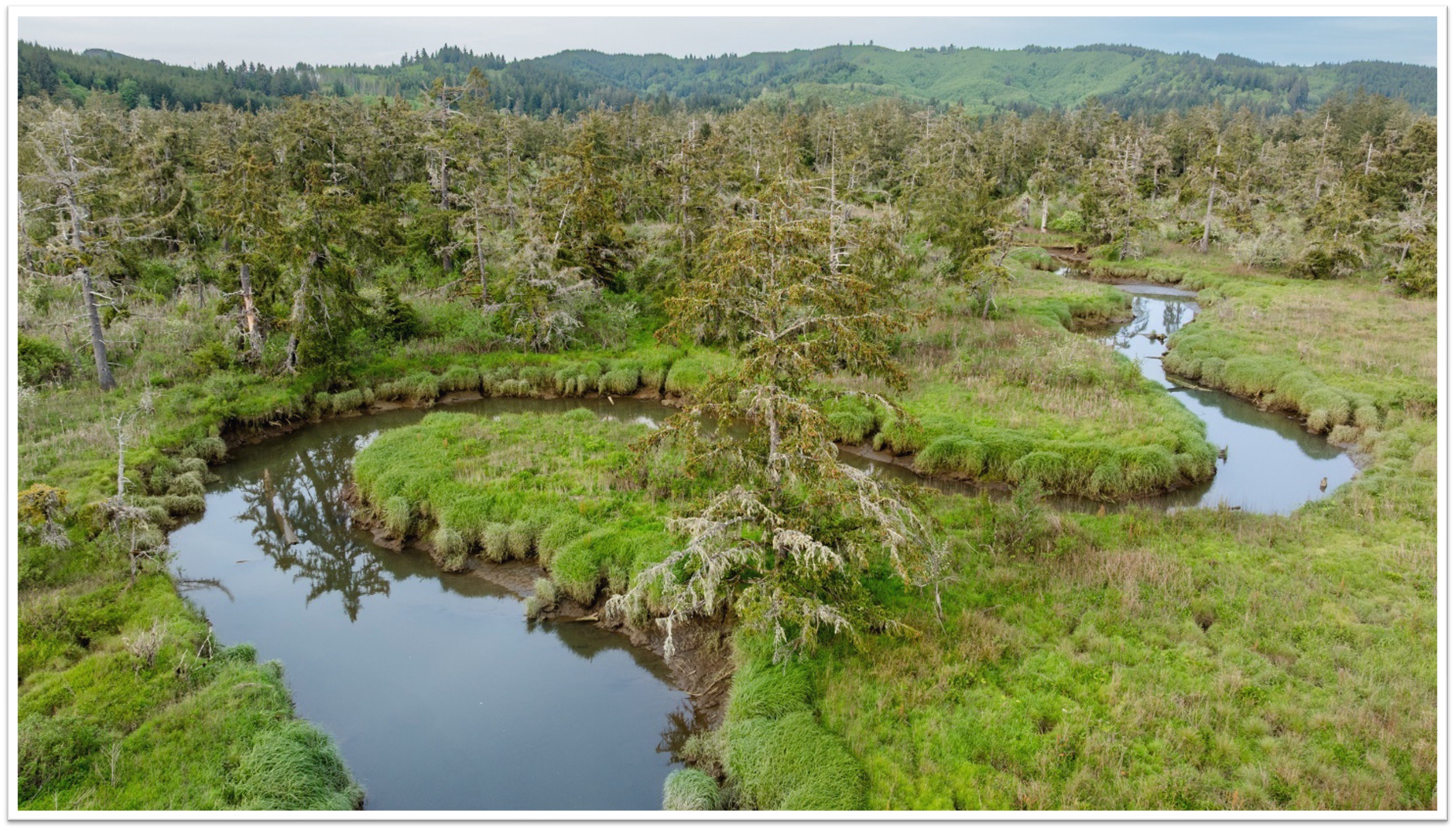Coast Chronicles: Strengthening Rural Communities
Published 7:17 am Saturday, April 19, 2025



Spring is springing
And just like that the daffs disappeared and the geese made Vs in the sky and headed north. We had a week of sunshine—unbelievably wonderful after these wet, soggy days. The hummers have arrived to pull tufts from last years cattails for nest building. Plum blooms are fading but my potatoes are sending up crinkly green signs of life; and my rhubarb has five or six new leaves—soon I’m hoping to consider pie-making. Even my garage roof is finally getting repaired.
Things are looking up, at least in the natural world, although I’m still active in the Blackberry Wars. I found my arm-length leather gloves and I’ve sharpened my loppers. But my wounds are grievous, maybe more to my ego than anything else. Because last year was a sequence of medical procedures for me, I lost an entire season of combat. I’m facing the challenge with renewed energy and commitment. I will not be jerked around by Blackberries!
National unrest
Let’s just say there are more ominous and problematic signs of unrest at the national level than in my yard. But I’m trying to keep a level head about the extent of the Whitehouse administrative actions, some are even worrying conservatives. (Tariffs, anyone?) Have they gone too far in not so subtly announcing they may, without due process, begin shipping off “home grown terrorists” to prisons in other countries; or cutting medical expenditures for contagious disease research; or threatening some of our most prized academic institutions? So much funding, already appropriated, is being pulled back from projects—medical, environmental, energy and community-centered. Not to mention life-saving food and healthcare programs in other countries.
Today I want to focus on a few aspects of current governmental policy that will affect us in our corner of the world: the demolishing of grants to museums, libraries, public radio broadcasting, and even post offices. As a small rural community, we are supported by these institutions that create physical or virtual gathering places for conversation and provide much-needed services.
I’ve spoken before about how much those of us living in Nahcotta miss our post office, a place where we posted funeral notices, exchanged books and magazines, and caught up on the local news. I use our Timberland Library weekly and “Libby,”—the digital library-supported lending system—every single day. (You can use Libby to borrow books and even ordinarily expensive magazines absolutely free. You just need a library card.)
My hero: Madeline Dickerson Matson
Last week I caught up to one of our younger generation and rising local stars: Madeline “Maddie” (Dickerson) Matson about her new job as director of Rural Assembly, an organization whose goal is to empower rural peoples and places ( https://ruralassembly.org/ ). Maddie succeeds past director Whitney Kimball Cole, who acknowledges that Maddie “has been a longtime friend, collaborator, and mentor of mine in the rural advocacy field.” Madeline leaves her position as director of the Columbia Pacific Heritage Museum (though she is still assisting in the search for her replacement), to take up this new set of responsibilities.
As Maddie forcefully says, “Rural communities need compassionate, thoughtful, empowered leaders to push back against harmful narratives and to stand up for what rural places actually need.” She would know—Maddie has been living on the Peninsula since she moved here with her family at five years old. Though she left for college to study journalism, and, after graduating, lived for a time in Ireland, she came back home, confirming for herself her love of rural communities in remote places.
In 2016 Maddie, with a group of women in Port Townsend, founded Rethinking Rural in an effort to connect rural millennials across the country. One of the results of this work was a partnership with Rural Assembly, an organization advocating for rural America, something needed now more than ever. “Rural America is going to lose a lot with all of these federal cuts that are coming. The impacts are going to be very difficult for small communities.”
In terms of defining rural America, Maddie says, “Everyone has a different definition but basically we are representing all small rural communities whether they are remote or close to an urban hub. But that could also include other factors: population, access to healthcare, even WIFI access. Issues include childcare, education and afterschool programs, food security, all of the above. It’s also a mindset—how we think about ourselves.”
Zero-sum?
Maddie continues, “Libraries, museums, post offices, coffee houses—sometimes called ’third places’—are important meeting and gathering places. Places where people get together to talk about their livelihoods, their issues and concerns, and can begin to create solutions. These places are so critical for a healthy community. Unfortunately a lot of them are very much at risk, not only by direct federal finding cuts but also just our own thinking about living in a more limited funding environment.”
As Maddie notes, “Libraries are supported by the Institute for Museum and Library Services (IMLS). It’s an organization of 70 employees and only .0046% of our national budget. Why are we cutting that? This current environment could create a hierarchy of giving in rural areas as people try to make up for these funding gaps. Maybe the person who donated $1k last year won’t be in the same position to help this year. But I want to push hard against this zero-sum mentality. That doesn’t serve us very well. We need to continue to think about our relationships and partnerships and keep our abundant mindset so we can pool resources and opportunities.”
National arena
Rural Assembly—and its umbrella organization, Center for Rural Strategies—is headquartered in Whitesburg, Kentucky, though Maddie has been working remotely. When I ask about Maddie’s priorities and projects she mentions that she is beginning to research how to identify and create physical “hub spots” for conferences and gatherings. It would be a way to get “boots on the ground.” But rural citizens at a distance would still be able to zoom in, perhaps even at networked digital hubs-sites where they could interact with one another. She will be traveling to rural Montana, Kentucky, Minnesota, and New Hampshire in the next six months.
Another of the projects for rural strategies is seed saving, a series of podcasts, and other ideas that support community resilience. Maddie also mentions, “We have a weekly gathering called ‘Morning Connections,’ every Thursday at 9:30 a.m. for rural women. It’s just thirty minutes and it’s an open forum, just a beautiful space for people to ask questions, raise issues about politics, or other concerns. I’m one of the moderators.”
I’ve followed Maddie’s life and career since I worked with her father, Mike Dickerson, at Shorebank Pacific (now Craft3) in their north coast headquarters in Ilwaco. Maybe you were lucky enough to know her during her high school years; or for her yummy bakery venture; or when touring her parents, Mike and Lynn’s, amazing garden. She’s also put her mark on our local museum, emphasizing its accessibility and programming for families. And now we have a chance to watch one of our local stars effect change at the national level.
As she says, “I loved what I was doing at the museum. I wasn’t looking for another job, but my new position at the Rural Assembly is coming at the perfect time and is the perfect thing for me, more than I could have imagined for myself.” Congratulation, Maddie—we’ve got your back and it looks like you have ours too!









